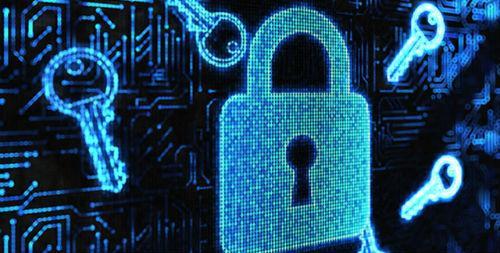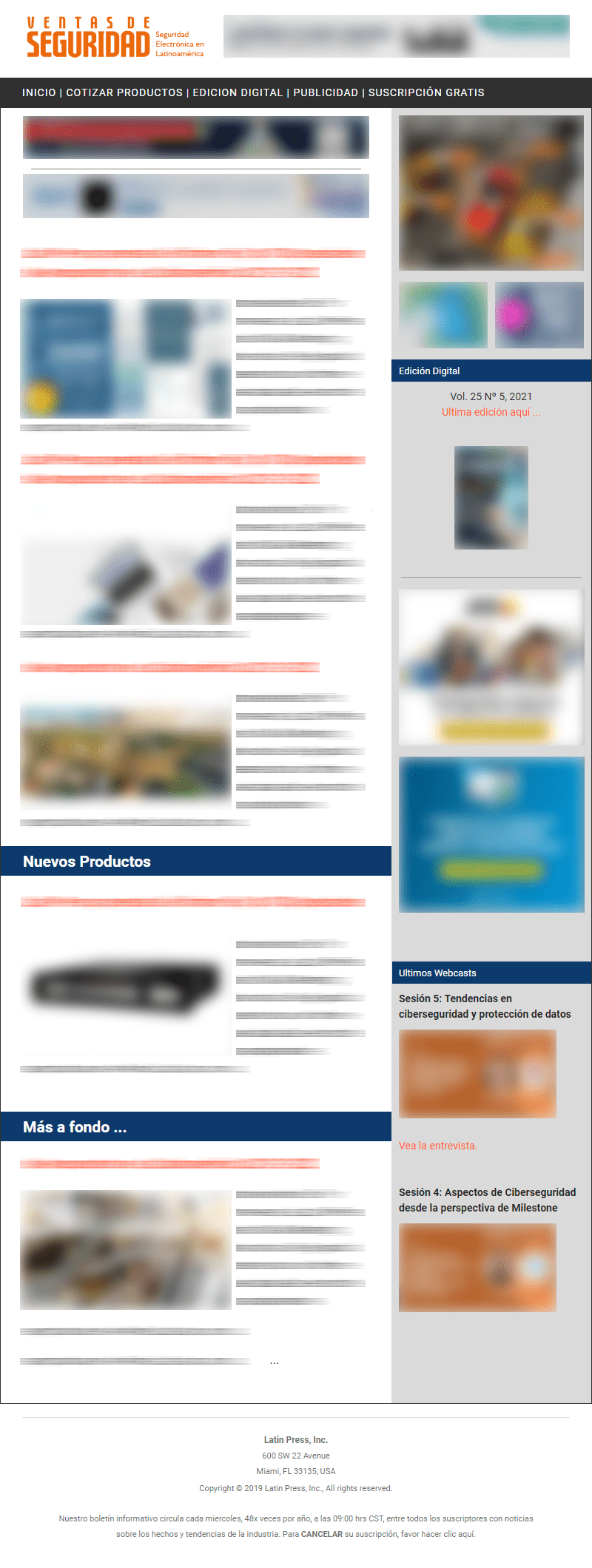 Latin America. Martín Hoz, Vice President of Engineering of Fortinet for Latin America, brings us an interesting reflection, in it he affirms that if there is something that will mark this 2016 at a technological level it is the trend of seeing more and more "devices" of any kind and all connected to the Internet. Not only those that people possibly already know, such as cars, televisions, wearables, washing machines or refrigerators, but others more at an industrial, commercial and ... personal level!
Latin America. Martín Hoz, Vice President of Engineering of Fortinet for Latin America, brings us an interesting reflection, in it he affirms that if there is something that will mark this 2016 at a technological level it is the trend of seeing more and more "devices" of any kind and all connected to the Internet. Not only those that people possibly already know, such as cars, televisions, wearables, washing machines or refrigerators, but others more at an industrial, commercial and ... personal level!
This trend of massification and hyperconnectivity is supported by an insatiable desire of users to do more and a genuine interest of manufacturers and suppliers of products and services that permanently question themselves: how to get more out of the Internet to deliver added value to my consumer, or have a competitive differential in the market?
The answer almost always comes from the hand of a new device, or an additional application for the cell phone or tablet, which means a new target of attacks for cybercriminals, if the necessary measures are not taken. It is a crucial aspect in which the user becomes master and absolute owner of his own cybersecurity.
 Here we could pause and really analyze how necessary this level of connectivity is on all the devices we could have in our things and homes. The answer to this is explained by the social impact that the Internet has today.
Here we could pause and really analyze how necessary this level of connectivity is on all the devices we could have in our things and homes. The answer to this is explained by the social impact that the Internet has today.
The connectivity boom
Recall that the connectivity boom had its peak at the beginning of the year 2000; so today, 16 years later, we are meeting young people from college and university who are part of the generation that does not know what it is to live in a world without connectivity and mobility. That generation does not conceive of a world without the Internet.
If leaving the cell phone at home can be traumatic for us, imagine how difficult it is for this generation to be disconnected! That is the generation that will have the purchasing power in 5 more years, when they graduate from the University and join the productive plant of their countries, in organizations that must be ready to take advantage of their talents, and that in turn must be ready to offer products and services in this new economic environment, social and cultural.
This is the fact that, in short, it generates pressure for manufacturers in terms of added value. This race to always offer the most modern, connected and cool device has been counterproductive in terms of cybersecurity, because unfortunately, it is an element that is not necessarily taken into account when designing and manufacturing.
The most important thing is to be the first to offer the concept in the form of a service or device. It's more important to have the device everyone wants than to have the device that's less vulnerable to security issues.
What can the user do to safeguard the personal information that their device has?
Based on the fact that there will always be cybercriminals willing to invest for access to our data, at Fortinet we offer a series of recommendations to follow:
1- As users we must assume our responsibility: This point is very complicated but core, because to a large extent it obeys the principles that each person and as a society have regarding the importance of our hygiene, integrity, etc. Today the logical or digital plane is so important in our lives and information is the most precious thing we have in that context, so documenting ourselves and being responsible in prevention schemes is pressing and responsibility of each one of us.
2- Ask ourselves, what will they use my personal information for?: As consumers, when we buy a device, we have every right to ask the manufacturer or service provider to be clear about the measures they are going to take to protect our personal information and what data they are going to use. Whether it is the physical location, name, e-mail, profile picture of WhatsApp, Facebook, Twitter, Instagram, LinkedIn, or some other social network, and for what purposes it will be used... only for statistical purposes, to send promotions, or to obtain any additional services.
If we begin to present this concern, more and more users will begin to lean towards products that do offer clear terms about the use of their information and will gradually leave aside those that do not; which would represent an opportunity for improvement for manufacturers to offer a safer product from all points of view.
3- Analyze my behavior as a user: regardless of what was fulfilled in the previous point, the security will be determined by me as a user according to the use I make of the technology and information that, voluntarily, I am exposing.
Some maxims to take into account are:
- - There is nothing free: every time someone offers me something for free, they are usually getting something in return. For example, if I download an application or if I use a free service, it is very often paid with user information, from usage patterns, consumption habits, location, contact book, for simply registering to access or use.
- - Eliminate the morbid: the temptation to open a link that invites us to see photos or videos of some famous (or not so famous) with appeal in minor cloths, perhaps doing something improper or morally questionable, is the perfect lure for cybercriminals, who bet that people prefer to "find out" about everything around them.
- - Take care of where and what information I share: it is important to avoid giving information that someone can use against me. The ideal, for example, is not to post where I am on vacation in real time, but later; or avoid showing photos of our children, especially wearing a school uniform or being in front of the school where they study. Never show photos of the house or colony where I live.
4- Technological challenge: the protection of the information I keep on my devices is vital, so the use of passwords, as well as the protection of the connection to and from my computer through applications, software or personal firewall hardware and content filters (at least URL Filter, Antivirus and Antispam), must be present within the tools to be used on the computers from where I connect to the Internet.
In the midst of this evolution to maintain an increasingly connected world, these basic principles can be the basis to avoid a headache and that unscrupulous people play with the most private thing that people have, such as personal data.

























Leave your comment